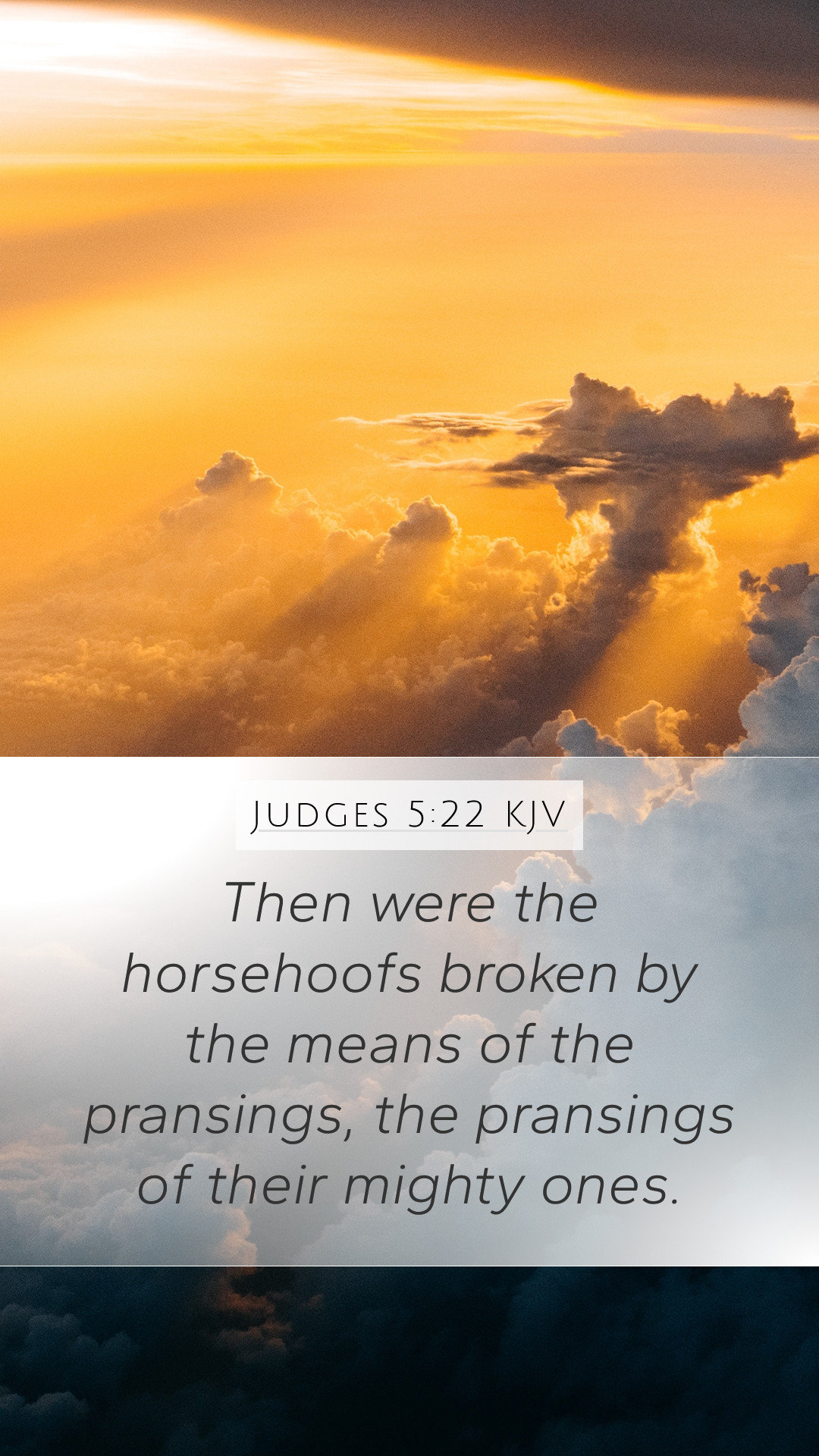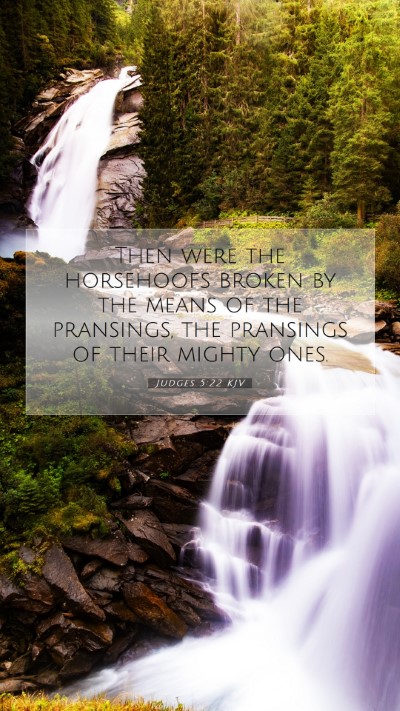Bible Verse Commentary: Judges 5:22
Verse: "Then were the horsehoofs broken by the means of the pransings, the pransings of their mighty ones." (Judges 5:22)
This verse is found in the Song of Deborah, a significant poetic tribute to the events following the victory over Sisera and the Canaanites. Here, Deborah poetically describes the breakdown of the enemy's army, illustrating the chaos that ensued as Israel’s forces overwhelmed their assailants.
Meaning and Interpretation
The verse speaks to the tumult of battle and the swift downfall of the oppressors. The mention of “horsehoofs” breaking signifies the disarray and panic among Sisera's forces, dramatically depicting the defeat of a mighty army by seemingly unarmed Israelites.
- Deborah's Leadership: Deborah, as a prophetess and judge, represents divine empowerment and leadership. Her role in this victory signifies not only the strength of the Israelites but also God’s hand in their deliverance.
- Symbolism of Horses: Horses in ancient warfare were symbols of strength and power. The breaking of horsehoofs illustrates a turning point where the forces that were once powerful become defeated.
- God’s Intervention: The phrase “by the means of the pransings” suggests miraculous intervention, indicating that it was not merely human effort but divine assistance that led to victory.
Biblical Exegesis
In understanding this passage, we must consider the historical context of Israel’s oppression by Jabin, the king of Canaan, and his commander Sisera. Israel's cries to God for deliverance set the stage for God’s selected leaders to arise and aid in their liberation.
Insights from Public Domain Commentaries
Matthew Henry:
Henry highlights that the descriptions of this battle emphasize the power of God displayed through the Israelites' victory. He interprets the symbolism as a representation of how God dismantles the might of the enemy when His people are faithful.
Albert Barnes:
Barnes offers a perspective on the poetic nature of the language, interpreting the imagery of broken horsehoofs as an indication of an unexpected and sudden defeat. He emphasizes the notion that God’s might prevails over human strength.
Adam Clarke:
Clarke points out that this victorious scene serves as a reminder of the chaos that ensues when God intervenes in battles. He stresses the importance of recognizing the spiritual forces at work that often go unseen in physical confrontations.
Cross References
- Judges 4:7: God’s command to Barak to lead the attack against Sisera.
- Psalm 68:6: God setting the solitary in families; He brings out those who are bound into prosperity.
- Isaiah 31:1: A woe to those who go down to Egypt for help, emphasizing reliance on God instead of worldly strength.
Application to Daily Life
Understanding the context and meaning of Judges 5:22 offers valuable insights for personal application:
- Faith in Adversity: Just as God delivered Israel, believers can find comfort in knowing that divine assistance is always present in times of trouble.
- The Power of Unity: The collaboration of Deborah and Barak shows the importance of working together in faith-filled community, much like modern Bible study groups.
- Recognition of God’s Sovereignty: This verse reminds us to acknowledge God’s power over all situations, guiding our responses to challenges we face.
Final Thoughts
Judges 5:22 serves as a powerful reminder of God's faithfulness and strength. The breakdown of the enemy reflects the overarching theme of divine intervention that resonates throughout Scripture, urging believers to remain steadfast in faith, aware of the unseen battles being fought on our behalf.
This verse, along with commentary from public domain sources, provides invaluable insights for those seeking to deepen their Bible study understanding and apply these truths to their lives.


